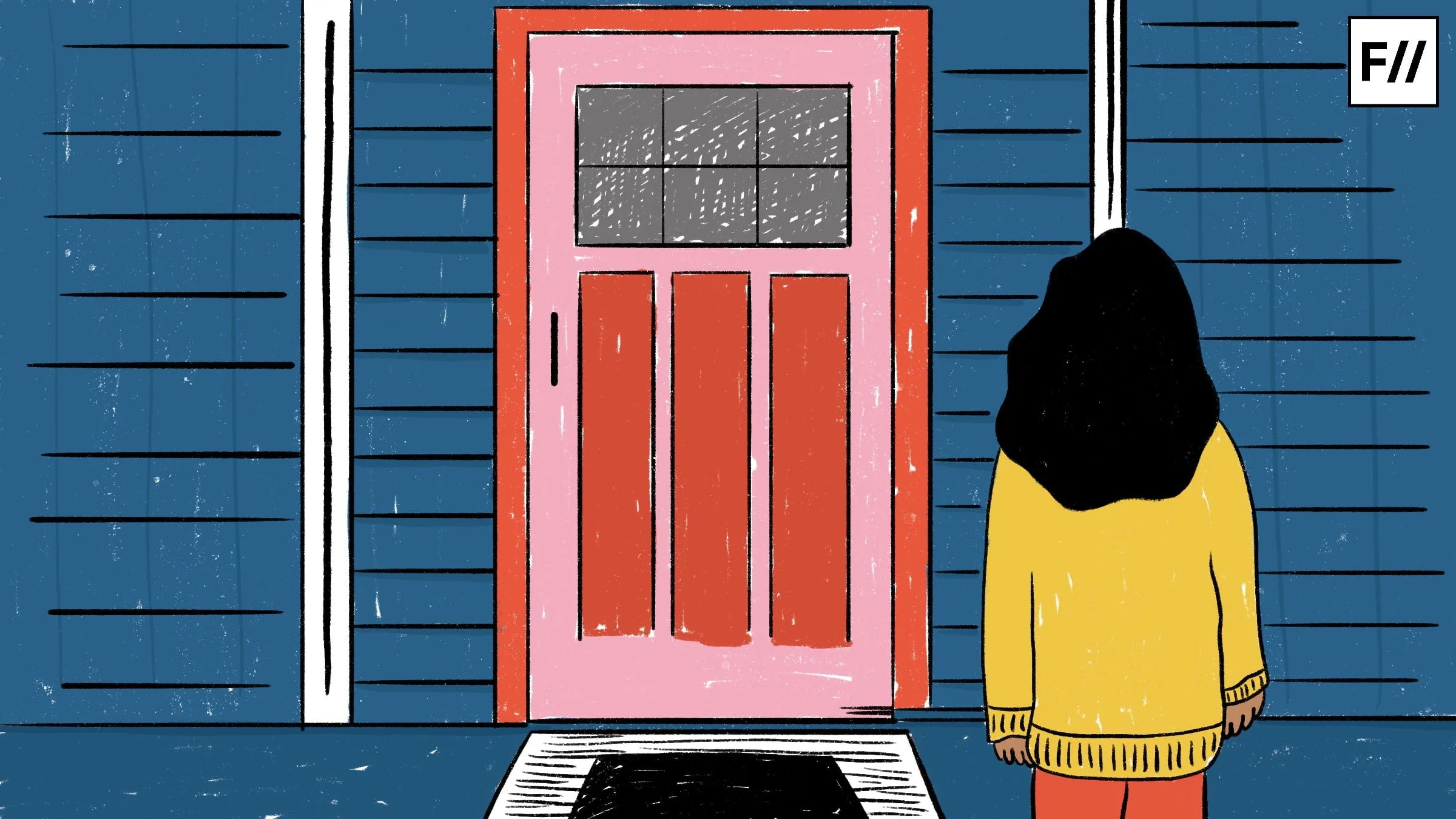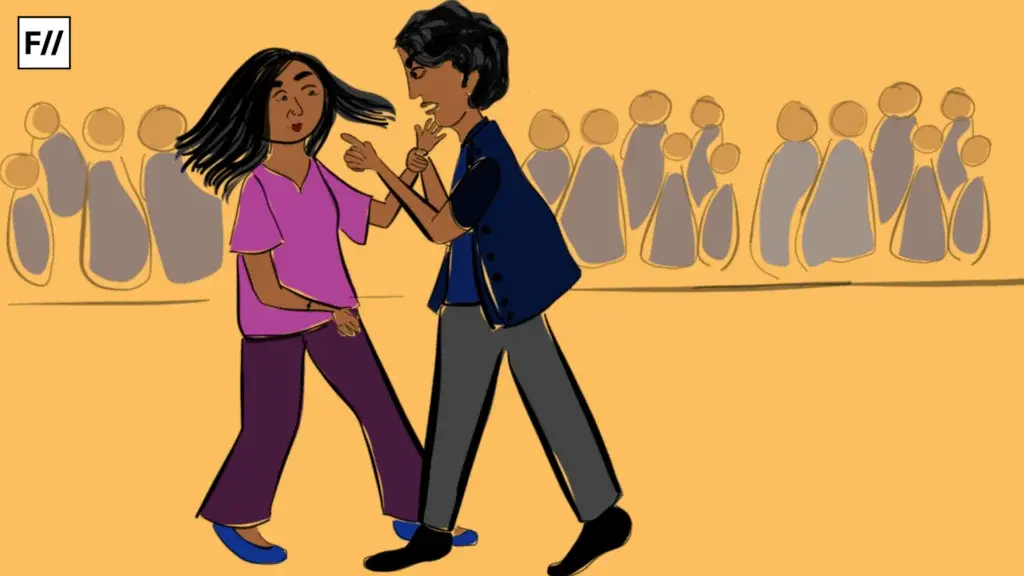Trigger Warning: Sexual violence
India has swept medals at a record rate in the Paralympics 2024 with 29 medals with 7 gold medals, the best performance ever yet – across the Olympics “main” event and Paralympics to date. The same month that the Paralympics was flagged off in Paris, a shot put and discus thrower para-athlete alleged molestation by an official. It was also the month that began with a report from Andhra Pradesh – an intellectually disabled woman was raped by her neighbor. A few weeks later a “mentally unstable” woman was raped in Uttar Pradesh, by a man who lured her into his home with food. A few days later a man was held for molesting an 11-year-old differently-abled girl at a civic hospital in Thane.
While the gold-starved audience grasped at the medals won by para-athletes, gender-based violence against disabled and neurodivergent folx barely found space in the news cycle.
All of the above incidents were reported in relative obscurity because the story of individuals living with atypical abilities is of little interest to the able-bodied and neurotypical world. While the gold-starved audience grasped at the medals won by para-athletes, gender-based violence against disabled and neurodivergent folx barely found space in the news cycle. In the current conversation about rape in India, what are we missing? Does the current system create an opportunity for justice for the victims or survivors living with disabilities? Does it make them more vulnerable to violence?
The system owes little to what is invisible
The world that we live in is designed for and by the able-bodied and neurotypical humans. It is primed to benefit them and fails to protect marginalised communities. The able-bodied cis-male with racial or caste supremacy sits at the top of the tier and the world gets progressively dangerous and fatal as one moves through intersections of marginalisation and inivisibilisation. A world that is already struggling with gender-based violence en masse can barely wrap its head around what happens to people living with disabilities.

‘It is easy not to take responsibility for things that are invisible. If you make invisible entire sections of society – like disabled people or neurodivergent people, then you would not have to answer for why the infrastructure is not built to accommodate us,‘ said sanghamitra, a neuroqueer artist from Kolkata.
We have made little to no effort to understand the lives and everyday difficulties faced by individuals living with disabilities and neurodivergence. In gender-based violence, like rape or molestation, we have seen that perpetrators choose a vulnerable and relatively-indefensible individual to attack. A society that has categorically kept an entire section of a society tucked away from the light with barely any access or support creates an opportunity for potential violence against them.
Disability is a wide spectrum from visible to invisible disabilities. Some disabilities reduce the chance of physical defense while others can obstruct someone’s chance to explain their experience. Katha Bhatt, a communications specialist who has been working in special education and social development sectors, emphasises the struggle of communication, ‘One of the most pressing issues is communication barriers. survivors with intellectual disabilities or those who can’t speak up—they struggle to put their experiences of abuse into words.‘
Autonomy has always been in question for individuals with disabilities as they often need assistance, especially while growing up, and rely on their caregivers.
This not only causes misreporting but often their words are not given the necessary importance and are dismissed. Autonomy has always been in question for individuals with disabilities as they often need assistance, especially while growing up, and rely on their caregivers. This makes them vulnerable to the whim of the system – from their caregiver to the police to the court of law.
Policy and implementation gap: a need for training and sensitisation
Representing Peace and Equality Cell (PEC), activist-lawyer Prita Jha discussed the challenges of handling a child sexual abuse case under the POCSO law in a village in Anand, Gujarat. Appreciating the law Prita said, ‘POCSO law… has very good provisions – it says that in case of disabled persons, there should be an audio-visual recording, they should have an expert who is an expert on their disability who then can help them get their evidence to the police, to the court – which is all very well but everybody needs to know that and implement that.’
The victim was initially misdiagnosed as deaf and mute by both the doctors and the police, preventing her from giving a statement. As is provisioned within POCSO, the legal team at PEC sought an expert for the case but the bureaucratic system and court approvals caused major delays. ‘We had found the expert but then the court had to appoint the expert,‘ Prita explained. ‘By the time all of this happened the expert we had found for the girl had left the country, so we had to go get another expert.’
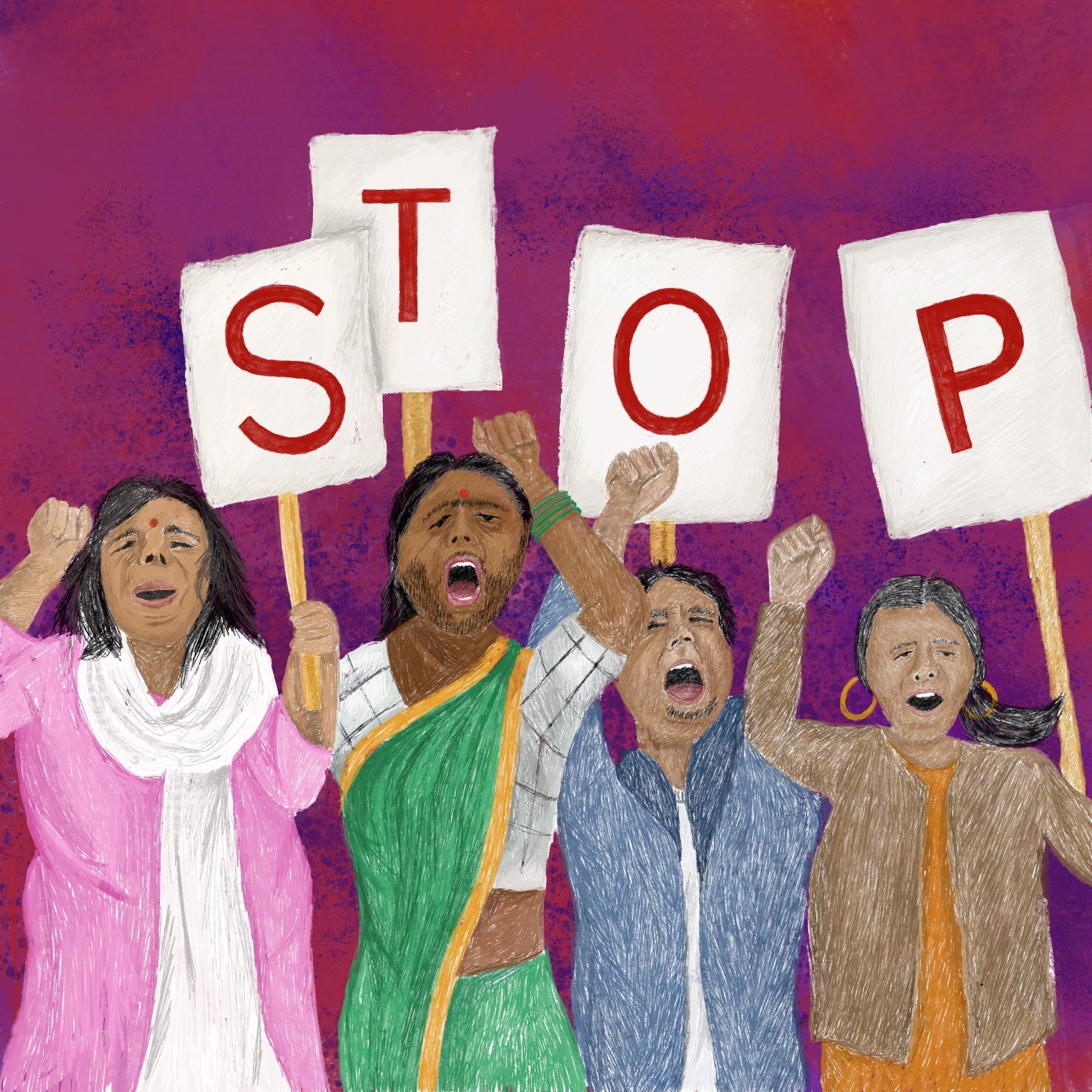
The situation worsened when the girl’s mother died, leading to the girl being married off, complicating efforts to bring her to court. Despite the challenges, the case was won, and the girl received compensation, which activists ensured was kept for her. After splitting from her new family due to mistreatment, the compensation helped her with rehabilitation. ‘In a “normal” case we would have to do 20% of the work we had to do in this case for the conviction,’ said Prita. PEC’s field and legal team alongside the network of district-level advocates and support persons made such a win possible, but how many people across the country have access to such support?
Resonating with the need for a more sensitive system Katha said, ‘The lack of specialised services and the fact that officials need a crash course in empathy is also a concern.‘ Survivors of gender-based violence with disabilities face an admixture of challenges, struggling with both inadequate support and missing essential documentation needed to access justice. The lack of trained personnel who are installed to deliver justice amounts to criminal negligence. The pursuit for justice against GBV is already an insurmountable challenge, additionally to navigate that system with disabilities, delays and often derails the course of justice.
The trauma of living with violence
Adrija Chakraborti, a psychologist and feminist practitioner who founded the Mental Health Movement (MHM) Clinic, summarised the experience of trauma and how it affects persons with disabilities. Trauma, especially gender-based violence (GBV), has a deep and lasting impact that can develop into Post Traumatic Stress Disorder (PTSD), which is exacerbated for individuals with disabilities or neurodivergence. The impact of GBV can lead to psychological distress, majorly in three distinct ways: flashbacks, hypervigilance, and disassociation. These are the nervous system’s response to trauma. But what happens when there is systemic violence and triggers? It compounds to create complex PTSD.
GBV complicates it even further because it is systemic. It is there in every facet of life… someone who is not a cis-het able-bodied man would feel under threat, that they need to protect themselves
Adrija Chakraborti, clinical psychologist.
‘GBV complicates it even further because it is systemic. It is there in every facet of life… someone who is not a cis-het able-bodied man would feel under threat, that they need to protect themselves,’ said Adrija. Individuals with disabilities face additional barriers, especially those with neurodivergence, whose sensory differences can intensify the trauma. ‘One thing that is heightened in people with neurodivergence is sensory differences… the sensory experience can escalate to unimaginable pain.’
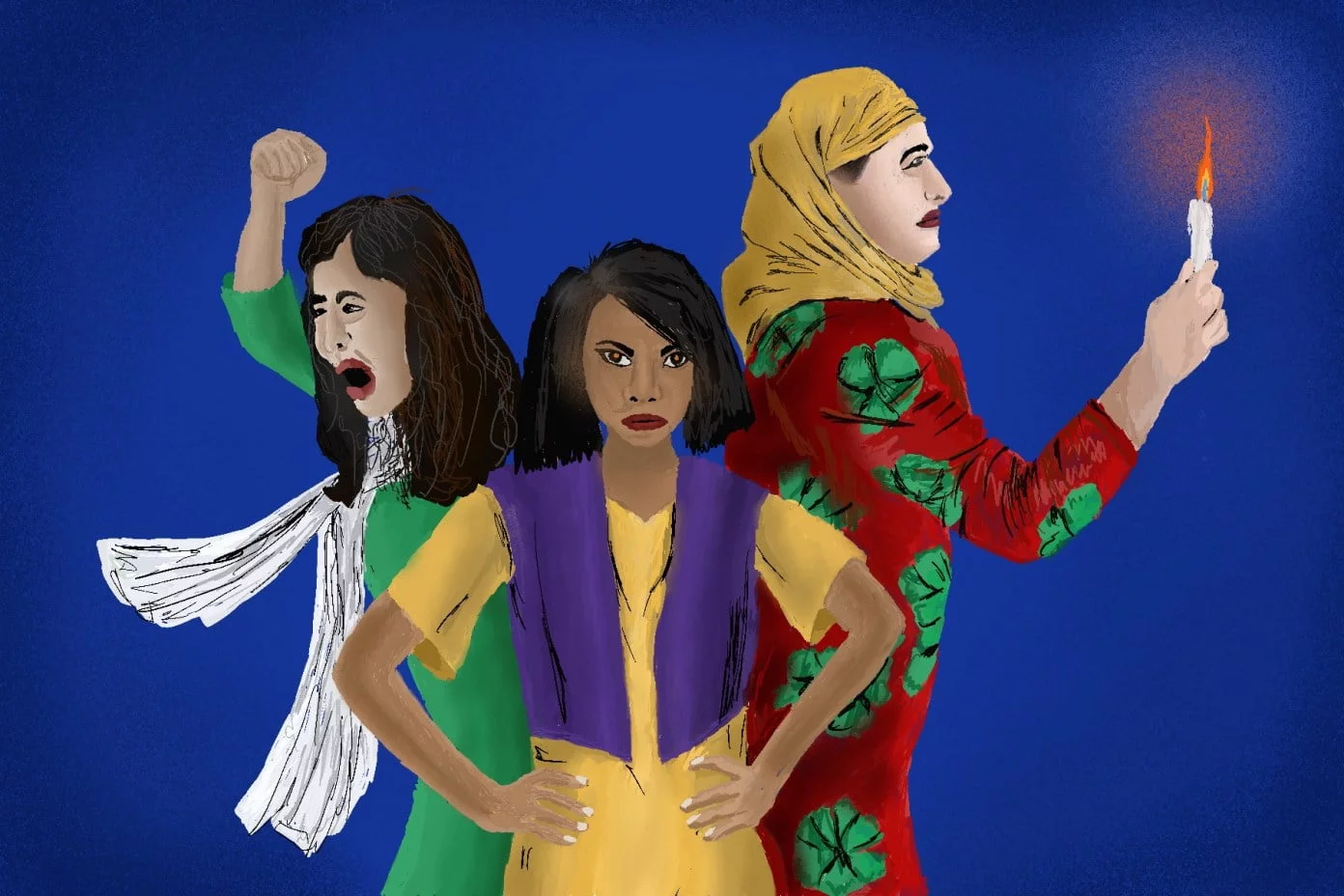
Resonating this thought, sanghamitra shared her lived experience, ‘When something like a sexual assault happens that isn’t just assault in the way that violence is understood in the neurotypical context – everyday stimulus is already painful for a neurodivergent brain.’
The social rejection and lack of understanding of neurodivergence can lead to feelings of isolation and low self-worth, making them more vulnerable to predators. ‘Predators are mostly cowards, so they would put themselves in a situation of power.’ The predators not only draw power from the vulnerability of the victim but from the society that protects them or turns a blind eye.
sanghamitra draws attention to a system that enables such violence. ‘There have been reports about mental health institutions… individuals who go through regular sexual abuse by the people who are supposed to take care of them. Reports like that surface every now and then, but never get the attention like RG Kar has received for instance.’
In a 2014 HRW report, it was documented that women with disabilities in India are often forced into mental hospitals and abused – risking physical and sexual violence. In shelters, PEC director Prita emphasised the importance of shelter managers in creating a safe environment for recovery and rehabilitation. But often the said managers do not have the proper training to work with the diverse disabilities. Medicines are administered by them along with primary care, leaving the patients heavily reliant on the shelter managers and social workers. It is not only essential that people working closely with persons with disabilities be trained but that the necessary systems be put in place for them to be able to deliver the service.
It is not only essential that people working closely with persons with disabilities be trained but that the necessary systems be put in place for them to be able to deliver the service.
sanghamitra says, ‘I don’t see neurodivergent rehabilitation as anything different from non-neurodivergent people – basically, we need to be listened to. Obviously, the needs are different.’ Trusting the survivor and providing them autonomy to voice their lived experience is critical. Addressing the trauma of disabled survivors requires a shift in societal structures and a trauma-informed, inclusive approach to support and care.
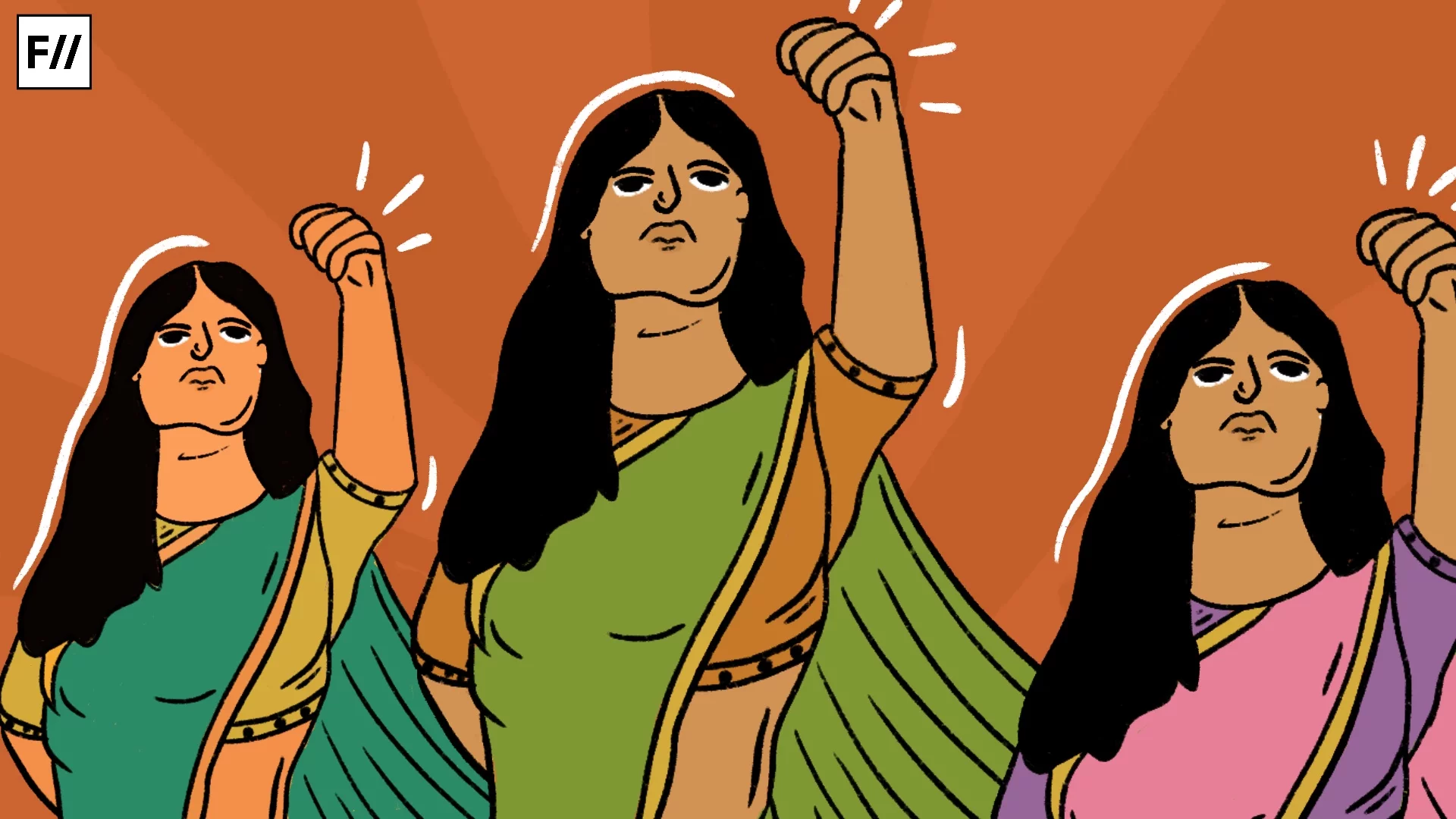
Katha says, ‘Justice isn’t one-size-fits-all; it’s about understanding the whole person. So, intersectionality plays a critical role in our advocacy.’ Change must start from the foundation, addressing invisible communities and ensuring everyday support before pursuing restorative justice systems.
In conversation with
Adrija Chakrabarti, psychologist and feminist practitioner, founder of The Mental Health Movement Chandigarh
Katha Bhatt, communication specialist, experience in special needs and CSA
Prita Jha, lawyer-activist, director of Peace and Equality Cell
sanghamitra, neuroqueer artist
About the author(s)
She/they is an editor and illustrator from the suburbs of Bengal. A student of literature and cinema, Sohini primarily looks at the world through the political lens of gender. They uprooted herself from their hometown to work for a livelihood, but has always returned to her roots for their most honest and intimate expressions. She finds it difficult to locate themself in the heteronormative matrix and self-admittedly continues to hang in limbo
